Featured
 It’s hard to believe, but things are getting better. They will continue to if we keep up the fight. By Robert Reich / The Guardian
It’s hard to believe, but things are getting better. They will continue to if we keep up the fight. By Robert Reich / The Guardian
Setbacks notwithstanding, we are better today than we were 50 years ago, 20 years ago, even a year ago. Shown is a rising sun.
It was quite a year. Some of the regressive forces undermining our democracy, polluting our planet, widening inequality and stoking hatred have been pushed back. This is a worthy accomplishment and cause for celebration. It offers hope that the Trump years are behind us and the hard work of building a decent society can resume.
But this is no time for complacency. No one should assume that the battle has been won.
The anti-democracy movement is still fulminating. Trump is still dangerous. Corporate malfeasance continues. The climate catastrophe is worsening. Inequality is widening. Reproductive rights have been dealt a major setback. The haters and bigots have not retreated. Read more
Related: Why Trump’s Reign of Republican Terror Is Really Ending. By Matt Lewis / The Daily Beast
Political / Social
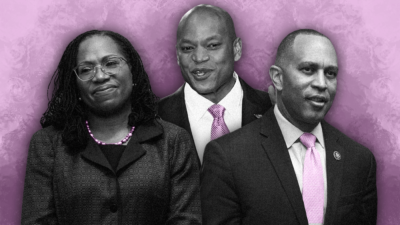 Black Americans shaping a new America. By Cheyanne M. Daniels / The Hill
Black Americans shaping a new America. By Cheyanne M. Daniels / The Hill
Black political power was on full display over the last year as a record number of Black candidates ran up and down the ballot for both parties in the midterm elections. Several of those candidates became the first Black Americans elected to their offices. Here’s a look at a few of the Black Americans who made history this year. Read more
 Proof That Republicans Know Exactly How Racist They Are. By Kevin M. Kruse. The Daily Beast Podcast
Proof That Republicans Know Exactly How Racist They Are. By Kevin M. Kruse. The Daily Beast Podcast
Republicans co-opting Martin Luther King Jr.’s quotes while pushing policy and supporting legislation directly in opposition to the Civil Rights leader’s wishes is just one example of the party attempting to rewrite history. In fact, there are so many examples of revisionist history happening these days, particularly among conservatives, that historian and University of Princeton professor Kevin M. Kruse felt the need to publish a book alongside fellow historians, and join this episode of The New Abnormal politics podcast, to set the record straight. Listen here
 Black support for GOP ticked up in this year’s midterms. By Ayanna Alexander and Gary Fields / ABC News
Black support for GOP ticked up in this year’s midterms. By Ayanna Alexander and Gary Fields / ABC News
Black voters have been a steady foundation for Democratic candidates for decades, but that support appeared to show a few cracks in this year’s elections
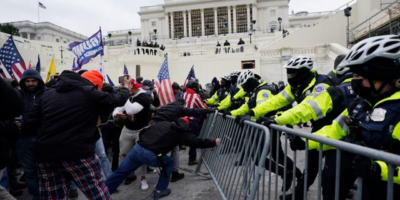 D.C. Official: Jan. 6 Response Would Be ‘Vastly Different’ If Rioters Were Black. By Ben Blanchet / HuffPost
D.C. Official: Jan. 6 Response Would Be ‘Vastly Different’ If Rioters Were Black. By Ben Blanchet / HuffPost
“I think there would have been a lot more bloodshed,” said House Sergeant-at-Arms William J. Walker.
The comments from Walker derive from the testimony he provided the panel in April. “I’m African American. Child of the Sixties. I think it would have been a vastly different response if those were African Americans trying to breach the Capitol,” said Walker, according to the transcript. “As a career law enforcement officer, part-time soldier, last five years full-time, but a law enforcement officer my entire career, the law enforcement response would have been different.” Read more
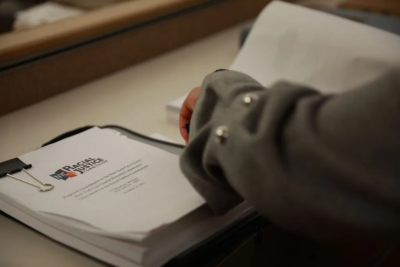 In New York City, Racial Equity Ballot Measures Passed by a Wide Margin. By Magggie Duffy / Mother Jones
In New York City, Racial Equity Ballot Measures Passed by a Wide Margin. By Magggie Duffy / Mother Jones
Voters chose to codify racial justice in the municipal constitution.
New York City approved three ballot measures to codify racial justice in the city charter. As I reported earlier this week, the Racial Justice Commission and proposed ballot measures were a response to the racial reckoning in the summer of 2020 over police brutality and to a pandemic that disproportionately impacted Black and brown New Yorkers. Read more
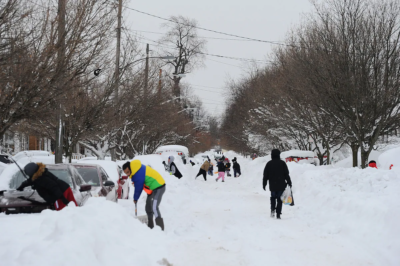 Buffalo blizzard fuels racial and class divides in polarized city. By Brianna Sacks / Wash Post
Buffalo blizzard fuels racial and class divides in polarized city. By Brianna Sacks / Wash Post
Residents on Woodside Drive take it upon themselves to clear heavy snow on Dec. 27, 2022 in Buffalo, New York. (John Normile/Getty Images)
As Buffalo begins to dig itself out from its deadliest disaster in a decade, the plights of people stuck for days in frigid homes without much food, their streets still unplowed, have reignited deep economic and racial fault lines that have long polarized the city. Read more
 In Jackson, Mississippi, burst pipes are just the latest water problems. By Scott Neuman / NPR
In Jackson, Mississippi, burst pipes are just the latest water problems. By Scott Neuman / NPR
When Jackson, Miss., Mayor Chokwe Antar Lumumba appeared before cameras and microphones earlier this week, he was there to deliver another grim report on the city’s troubled water system, which officials have been struggling for months to patch while they plan for a more permanent fix.
Lumumba said the winter storm that swept across the country last week —plunging much of the South into a rare deep freeze — had burst more pipes in a badly compromised distribution network, forcing a new boil-water notice to be issued. “Obviously, we are dealing with the worst case scenario,” he said a day after declaring a local state of emergency. “We are dealing with an old, crumbling system that continues to offer challenge after challenge,” he said. Jackson is 86.2% Black. Read more
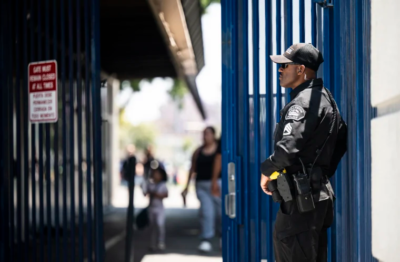 Report: Police in schools have outsize effect on Black children. By Maya Brown / NBC News
Report: Police in schools have outsize effect on Black children. By Maya Brown / NBC News
Black students were the subjects of more than 80% of the incidents of police violence accounted for in the #AssaultAtSpringValley report.
Black students were subjected to more than 80% of the incidents of police violence accounted for in the survey, which analyzed more than 285 incidents over a decade. At least 60% of police assaults on students resulted in serious injury to the students, including broken bones, concussions and hospitalizations. The report also cited 24 cases of sexual assault on students and five student deaths as a result of police force in schools. Read more
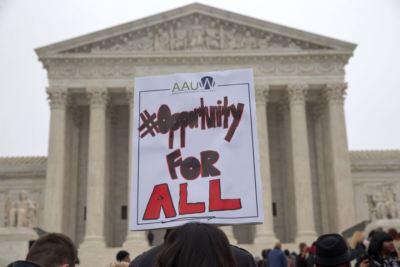 What critics of affirmative action get wrong about college admissions. By Andrew Brennen / USA Today
What critics of affirmative action get wrong about college admissions. By Andrew Brennen / USA Today
I watched from the gallery as the Supreme Court debated the future of race-conscious admissions. Problematic and largely negative framing in the debate obscures what is truly at stake.
UNC Chapel Hill is 10% Black in a state that is 22% Black. So when I heard that a group called Students For Fair Admission was suing UNC, I assumed it was to correct these obvious injustices. Imagine my surprise when I learned they sued the university for being too diverse. In October, five years since becoming involved with the case as a sophomore in college, I watched from the gallery as the Supreme Court debated the future of race-conscious admissions. As I descended the courthouse steps alongside my attorneys, I thought about the many civil rights leaders who’ve taken a similar stroll following Supreme Court oral arguments in cases with similarly significant implications for our democracy. Read more
Ethics / Morality / Religion
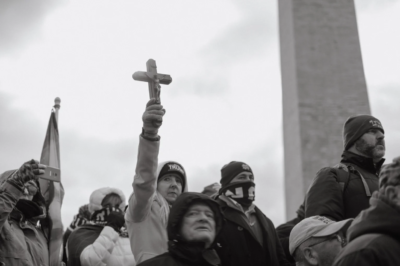 A Group of Christians Are Fighting Christian Nationalism. By Vera Bergengbruen / Time
A Group of Christians Are Fighting Christian Nationalism. By Vera Bergengbruen / Time
On Jan. 6, 2021, Amanda Tyler watched the attack on the U.S. Capitol unfold with a growing sense of dread—and recognition. Like many Christian leaders, Tyler, the executive director of the Baptist Joint Committee for Religious Liberty, immediately noticed the presence of religious symbols in the crowd. Large crosses were everywhere, carried by protestors marching to the Capitol and depicted on flags, clothing, and necklaces. Demonstrators held up Bibles and banners reading, “In God We Trust,” “An Appeal to Heaven,” and “Jesus is my savior, Trump is my President.” Read more
 The Rev. William Barber II Delivers a Moral Call for Peace. By Rev William Barber / The Nation
The Rev. William Barber II Delivers a Moral Call for Peace. By Rev William Barber / The Nation
We desperately need a cease-fire and negotiations to end the brutal Russian war in Ukraine today.
When we look back in history, we know that the good news of Jesus has not ended war. We are not naive. But it has sometimes caused it to pause. Whenever we welcome the Prince of Peace, this world’s violence is interrupted. Like Rachel in the Bible and Pope Francis, who just the other day wept in public over this war, we must mourn publicly over war. And something is terribly wrong in our churches if we try to have Christmas without doing that. Read more
 ‘When was it too late?’ Some U.S. Jews wonder about their place in America. By Michelle Boorstein / Wash Post
‘When was it too late?’ Some U.S. Jews wonder about their place in America. By Michelle Boorstein / Wash Post
“Our question was, in the 1930s, when did people know it was time? When was it too late?” said the 66-year-old Maine doctor.
Joe Py had been chipping away at a project he dreaded. In the past few years, he sold his valuable paperweight collection, got certified copies of his birth and marriage documents, and researched what it would be like to be Jewish in other countries. Where there weren’t Confederate flags down the street, articles about armed Christian militant groups in the local paper, and megawatt celebrities spouting explicit antisemitism. As the midterms approached, bringing more instances of terrifying anti-Jewish rhetoric, he and his wife had their house staged to sell. Read more
Historical / Cultural
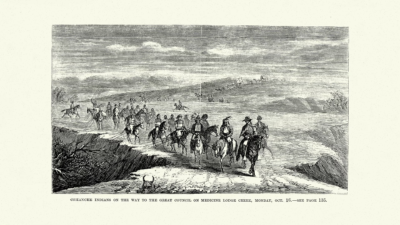 Rethinking the European Conquest of Native Americans. By David Waldstreicher / The Atlantic
Rethinking the European Conquest of Native Americans. By David Waldstreicher / The Atlantic
In a new book by Pekka Hämäläinen, a picture emerges of a four-century-long struggle for primacy among Native power centers in North America.
When the term indian appears in the Declaration of Independence, it is used to refer to “savage” outsiders employed by the British as a way of keeping the colonists down. Eleven years later, in the U.S. Constitution, the Indigenous peoples of North America are presented differently: as separate entities with which the federal government must negotiate. They also appear as insiders who are clearly within the borders of the new country yet not to be counted for purposes of representation. The same people are at once part of the oppression that justifies the need for independence, a rival for control of land, and a subjugated minority whose rights are ignored. Read more
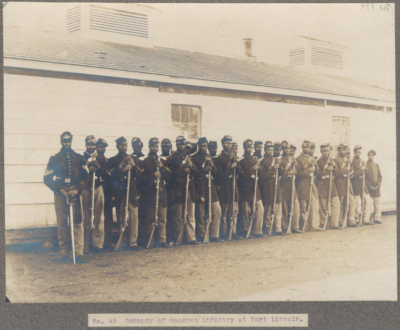 The Civil War and Natchez U.S. Colored Troops. By Deborah Fountain / AAIHS
The Civil War and Natchez U.S. Colored Troops. By Deborah Fountain / AAIHS
“Company of colored infantry at Fort Lincoln” New York Public Library Digital Collections.
By the end of the Civil War, nearly 200,000 Black men served as US soldiers and sailors. Of that number, more than 17,000 were from the state of Mississippi, with many of them stationed at Fort McPherson in Natchez, Mississippi. The acts of self-emancipation and agency of Natchez US Colored Troops (USCT) and Navy sailors demonstrated in their answer to the call of military service, and their forgotten contributions may not be known by some, but are definitely worthy of attention. The Natchez USCT not only contributed to the war effort but was essential to establishing a post-war monument honoring President Lincoln and emancipation that has stood in Washington, D.C., for almost 150 years. Read more
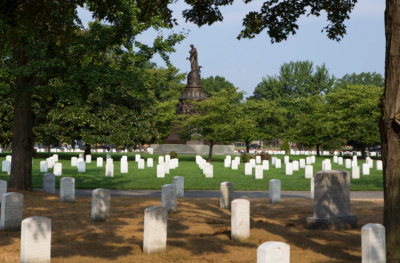 What to do with Arlington Cemetery’s Confederate Memorial. By Hope Hodge Seck / Wash Post
What to do with Arlington Cemetery’s Confederate Memorial. By Hope Hodge Seck / Wash Post
The Pentagon says it must come down, but the process of determining what comes next has only just begun
For 108 years, a massive bronze statue hailing the glory of the South has stood sentry over Confederate war dead buried in Arlington National Cemetery. Soon it will be dismantled on orders from the Pentagon, but then planners will face a quandary: what to do with a disgraced monument that some say may still have a historical lesson to impart. Read more
 Statue of late civil rights icon John Lewis will be erected in his congressional district where a confederate monument once stood. By Davon M. Sayers
Statue of late civil rights icon John Lewis will be erected in his congressional district where a confederate monument once stood. By Davon M. Sayers
A statue of the late civil rights icon Rep. John Lewis will now keep watch over a site in his former Georgia congressional district which once held a monument to the Confederacy.
Sculptor Basil Watson has been selected to design and create a monument to be placed at the Historic Decatur Courthouse in the district Lewis served for 17 consecutive terms, the DeKalb County Commemorative Task Force announced Thursday. Read more
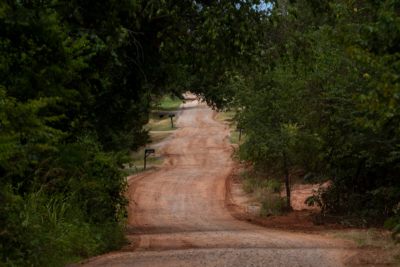 Missing people, buried bones at center of Oklahoma mystery. By Hannah Allam / Wash Post
Missing people, buried bones at center of Oklahoma mystery. By Hannah Allam / Wash Post
A high-stakes criminal investigation is a window into the often unseen threat of white-supremacist prison gangs
Smith is among a dozen or more people who have disappeared in recent years from the wooded, unincorporated terrain outside the Oklahoma City metro area, a rural haven for drug traffickers. Some families said they’re scared to call police or even to put up “missing person” signs because they suspect the involvement of violent white-supremacist prison gangs. Read more
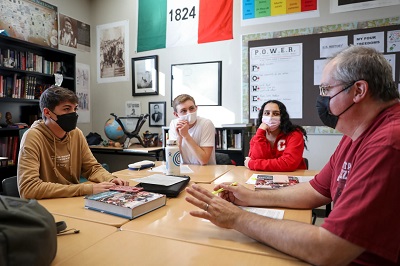 Critical race theory uproar: How history teachers design key lessons. By Erin Richards, Natalie Pate , Meghan Mangrum and Ryan W. Miller / USA Today
Critical race theory uproar: How history teachers design key lessons. By Erin Richards, Natalie Pate , Meghan Mangrum and Ryan W. Miller / USA Today
New laws tell teachers how to discuss the history of slavery and racism. We visited four schools to see what kids are really learning.
Republicans in 42 states have moved to limit discussions about whether the United States has a racist history, along with the teaching of unconscious bias, white privilege and discrimination, according to a tally by Education Week magazine. Fourteen states approved bans or restrictions on how schools discuss racism or sexism. Critical race theory, which examines how racism permeates institutions, isn’t traditionally taught in public schools, but the legacy of slavery is. Should teachers sanitize otherwise historically accurate lessons? Or defy the new orders? What do lessons on such topics even look like? Read more
 Bill Cosby Intends To Return to the Stage Next Year. By Jordan. By Jordan Hoffman / Vanity Fair
Bill Cosby Intends To Return to the Stage Next Year. By Jordan. By Jordan Hoffman / Vanity Fair
He may also return to the courtroom.
Bill Cosby, the 85-year-old comedian, actor, author, and producer, has maintained a low profile since he was released from prison in June 2021. On Wednesday, in a radio interview with WWGH, an FM signal out of Marion, Ohio, he announced that he intended to go out on the road next year. Read more
 Singer Anita Pointer Of The Pointer Sisters Dies At Age 74. By AP and HuffPost
Singer Anita Pointer Of The Pointer Sisters Dies At Age 74. By AP and HuffPost
Anita Pointer, one of four sibling singers who earned pop success and critical acclaim as The Pointer Sisters, died Saturday at the age of 74.
The Pointer Sisters also was the first African American group to perform on the Grand Ole Opry program and the first contemporary act to perform at the San Francisco Opera House, Neal said. Read more
 ‘Kindred’ Review: Octavia Butler Comes to the Screen. By Mike Hale / NYT
‘Kindred’ Review: Octavia Butler Comes to the Screen. By Mike Hale / NYT
Her 1979 novel about time travel to the slaveholding South is adapted, loosely, in an FX series on Hulu. Shown is Mallori Johnson who stars as a woman time-skipping between modern-day Los Angeles and an antebellum plantation.Credit…Tina Rowden/FX
The hallmark of Octavia E. Butler’s beloved novel “Kindred” is its believability. You may race through the book because it’s a cleverly constructed and paced science-fiction(-ish) page-turner. But its power comes from Butler’s meticulously imagined depiction of the lives of slaves and slave owners in the antebellum South and her rigorous consideration of how a time-traveling contemporary Black woman (circa 1976) might fare in that world. Read more
 Black Music Sunday: They joined the ancestors in 2022, but left behind the gifts of their music. By Denise Oliver Velez / Daily
Black Music Sunday: They joined the ancestors in 2022, but left behind the gifts of their music. By Denise Oliver Velez / Daily
Kos
Shown is Irene Cara (March 18, 1959–Nov. 25, 2022) sho holds her Grammy award in 1984.
It is impossible to pay full tribute to all the others we lost in 2022 with just one story, because there were far too many. This is a list of close to 150 musicians who have passed since Jan 1, 2022. Some of them you may not be familiar with, while others gained worldwide fame in their genres. Let’s visit a few who made an impact within the genres typically covered here, then meet me in the comments to share your music memories. Read and Listen here
 From Lizzo to Megan Thee Stallion, 2022 was the year of survival for Black women in the public eye. By Melanie McFarland / Salon
From Lizzo to Megan Thee Stallion, 2022 was the year of survival for Black women in the public eye. By Melanie McFarland / Salon
Success made these women standouts – and therefore targets for those not willing to see them prosper this year
All these Black women made headlines outside of the usual election cycle. Whether they’re doing so by standing for something, standing up for themselves or simply existing, they are very public examples of the ways misogynoir is used against high-achieving Black women to attacking broader constituencies – including but not limited to Black women en masse. Read more
Sports
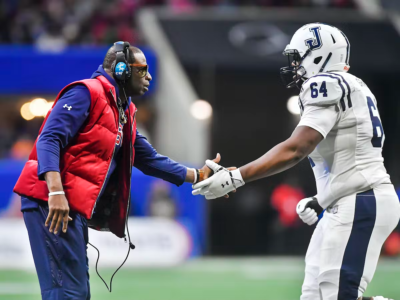 Calling Deion Sanders a sellout ignores the growing role of clout-chasing in college sports. By Jabari M. Evans / The Conversation
Calling Deion Sanders a sellout ignores the growing role of clout-chasing in college sports. By Jabari M. Evans / The Conversation
For most college football coaches, the move from a mid-major conference to a Power Five conference would be met with widespread praise. Not so for Deion Sanders.
When the Pro Football Hall of Famer announced he would be leaving Jackson State University, where he has coached the football team since 2020, to become head coach at the University of Colorado Boulder, many ardent fans and supporters reacted with dismay and disbelief – particularly his fans and supporters from the Black community. Read more
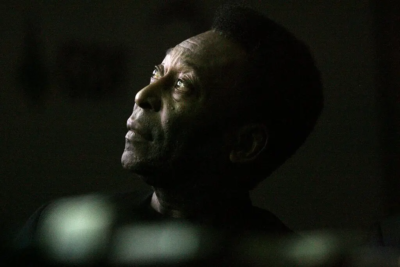 Pele’s Breakthrough Gave Soccer a Black Star. By Kurt Streeter / NYT
Pele’s Breakthrough Gave Soccer a Black Star. By Kurt Streeter / NYT
Pelé’s reign atop the most popular sport on earth began in an era defined by political struggles against colonialism and racial inequity around the world. Pelé, the Global Face of Soccer, Dies at 82.
Pelé’s graceful genius was just one part of what made him unforgettable. He was a dervish, a magician, an artist whose speedy precision, bullet drives and twirling bicycle kicks were brush strokes offering a challenge to the staid, stationary, and traditional standards of the game he came to dominate. Read more
Site Information
Articles appearing in the Digest are archived on our home page. And at the top of this page register your email to receive notification of new editions of Race Inquiry Digest.
Click here for earlier Digests. The site is searchable by name or topic. See “search” at the top of this page.
About Race Inquiry and Race Inquiry Digest. The Digest is published on Mondays and Thursdays.
Use the customized buttons below to share the Digest in an email, or post to your Facebook, Linkedin or Twitter accounts.